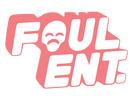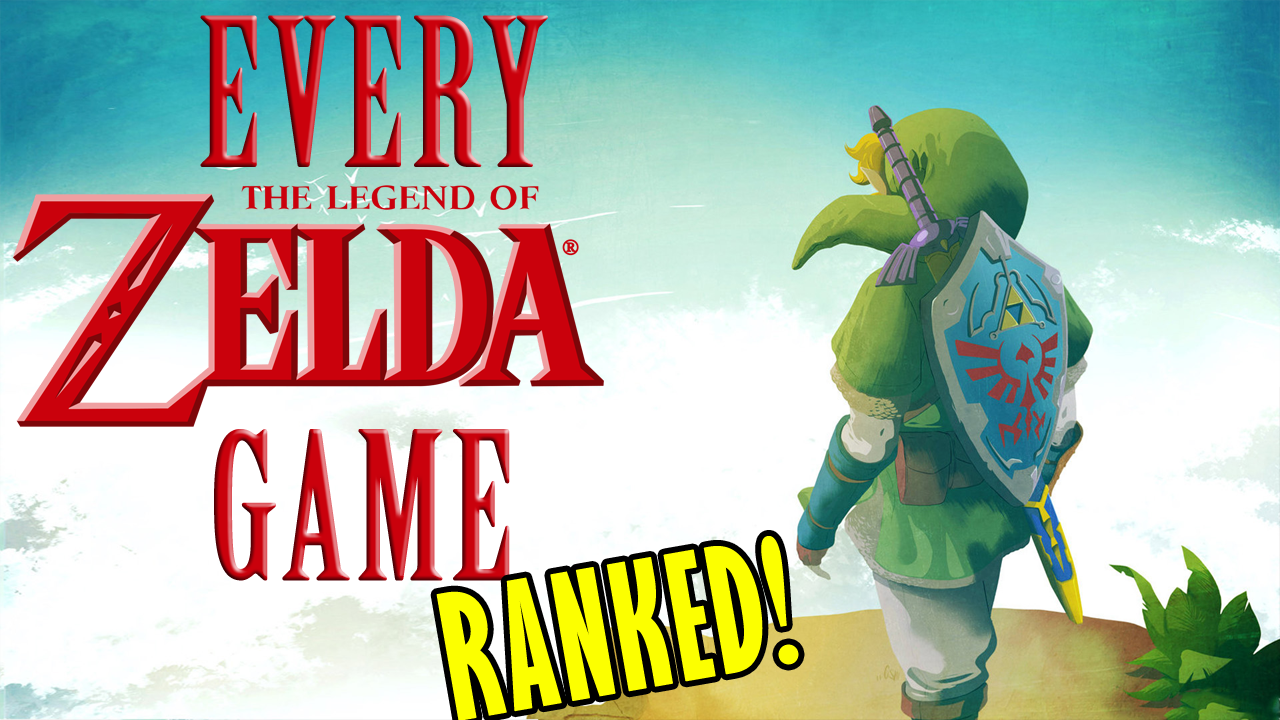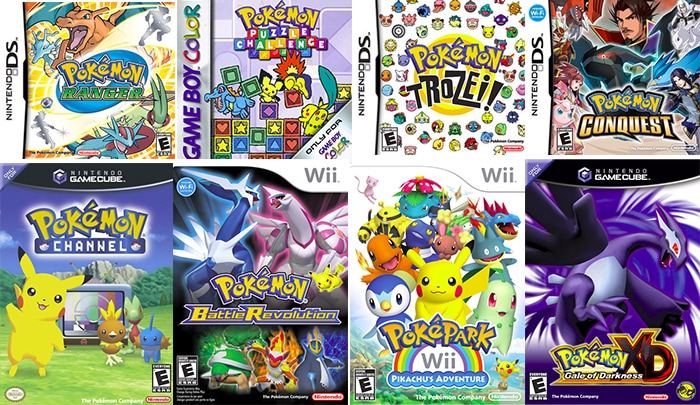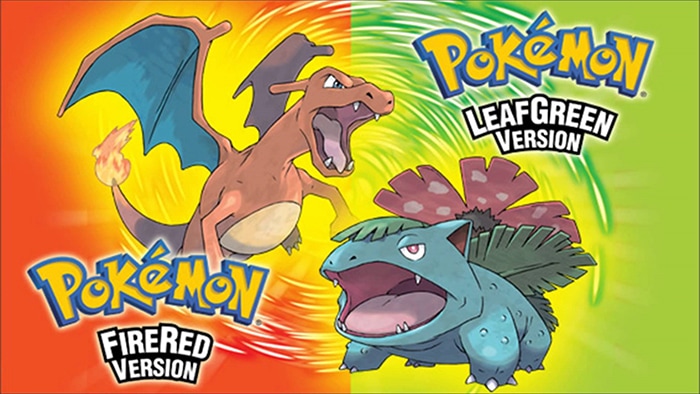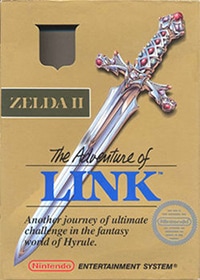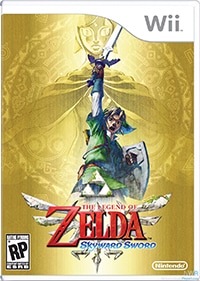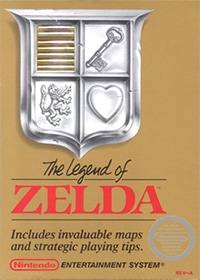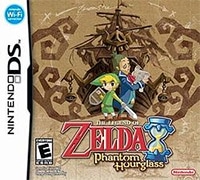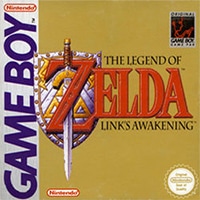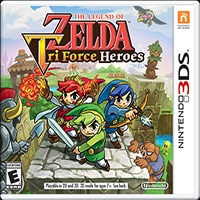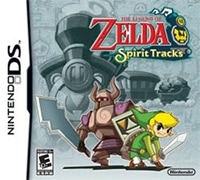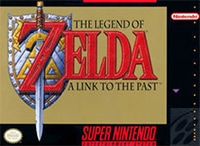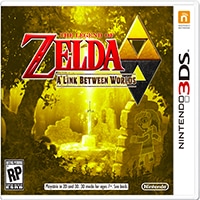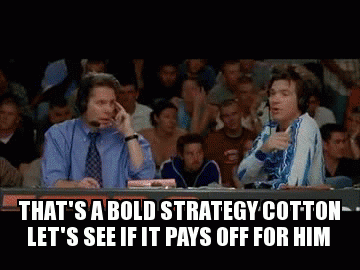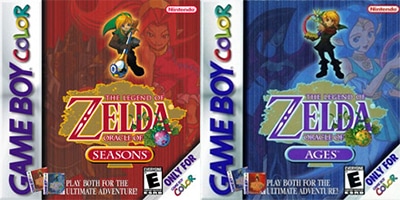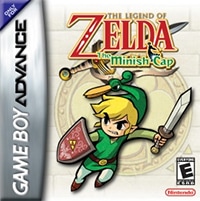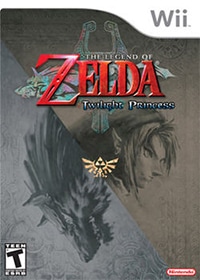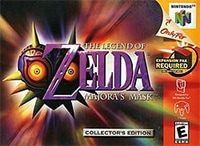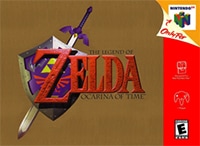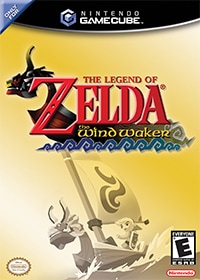- Link’s Crossbow Training
- CD-i games
- Hyrule Warriors (which I ran out of time to play)
- Four Swords and Four Swords Adventures which Nintendo have made nigh-on impossible to play
I have now played to completion every Zelda game to date. So, to celebrate the release of the newest installment, Breath of the Wild, here is every Zelda title ranked. Starting with the worst:
Zelda II: The Adventure of Link
Not once during the game did I feel like I was having fun. The Adventure of Link is an unrelenting chore that is often unfair in the way that only 80s games can be. Not to sound like a snowflake, but a challenge is only a challenge when you have all the tools you need to succeed, just not the skill. Zelda II’s challenge lies in you having neither the skills or the tools, just a hope that maybe you can make it past the rock solid enemies without losing too much life. The switch to 2D side scrolling was quickly dumped and never mentioned again, and I can’t be more thankful for that fact.
Defining Moment: Finding a glitch that allowed me to skip a floor.
Skyward Sword
We all marvelled at the potential of the Wii remote as a sword controller. Little did we know that even in the game that saw it implemented the best, it was still awful. The frustrating tedium of being beaten up by weaker opponents just because you can’t execute a pristine horizontal swipe to slice through their ill designed shields makes Skyward Sword a chore. As if that wasn’t enough, the interesting story of the birth of the Master Sword and Hyrule is further ruined by your companion Fi, who is so bad she retroactively makes Navi bearable.
Defining Moment: Falling backwards accidentally IRL after trying desperately to make your bird fly upwards in a graceful arc instead of YET ANOTHER 34 point spiral turn.
The Legend of Zelda
But there is something freeing about LoZ. There is no context given in-game at all. There isn’t even a stated “goal” outside of the implied “stop Ganon, save Zelda”. That means you have to explore, in the truest sense of the word.
Dungeons are difficult, enemies are sometimes repetitive, and a little bit of a pathway would have been helpful for this snowflake gamer raised on handholding, but everything that makes Zelda great is present. The roots of greatness are here for all to see, and have aged surprisingly well.
Defining Moment: Finally seeing “It’s Dangerous To Go Alone, Take This!” after years of memes got a giggle out of me.
Phantom Hourglass
There wasn’t a boss battle or voyage across the sea that didn’t involve the touchscreen in some awkward way. It was never as bad as Skyward Sword when it came to hardware integration, but it did hamper an otherwise fine Zelda title only let down by one poor game mechanic - a centralised dungeon that had to be revisited several times. Thankfully, both of these issues were somewhat ironed out for the sequel.
Defining Moment: The “Ohhhhh” moment when you realise you had to close the lid of the DS to make the ink on the bottom screen rub off onto the map on the top screen. You were saying “Ohhhh” to the walkthrough you found on Google, but still...
Link's Awakening
That said, it’s probably the most focused of the three Game Boy Zelda games, telling a compact story about saving the Wind Fish, with tight dungeon design and a good assortment of weapons. So while I can’t recall many of the games USPs, I can still give it a recommendation.
Defining Moment: The Wind Fish is... a hell of a thing. Like Elmer the Elephant with fins.
Tri Force Heroes
It also has a unique story, set in the fashion obsessed kingdom of Hytopia. But instead of saving Zelda or defeating Ganondorf, you are taking down a witch who stole Princess Styla’s fashion sense. This lack of real story weight, alongside the relatively short game length, leads me to giving TFH a thumbs up, but not necessarily a recommendation unless you have two buddies to play it with.
Defining Moment: Though I played the single player, getting your three Link’s to the finish line through teamwork was always a good feeling.
Spirit Tracks
That said, I look back on my time with Spirit Tracks more fondly than its prequel. I don’t remember all that much about it, hence its low spot here, but they sorted out some of the issues that really made Phantom Hourglass a slog. Plus any game that gets us closer to The Legend of Zelda: Dirtbikes of Destiny is fine by me.
Defining Moment: Finally putting all of that time playing with Thomas the Tank Engine to good use as you fight a boss battle on train-back, screaming in a proud and happy voice “THIS! IT WAS ALL LEADING TO THIS!”.
A Link To The Past
And yet, when I eventually got round to playing the game, I found it really quite frustrating. Game design has come a long way in the last quarter of a century, and I’m glad. I genuinely don’t think I’d be as big a fan as I am now had this obscure, “no obvious signposting” style stuck around. Link to the Past is almost sadistic in how little it tells you about how to progress.
I accept that this is largely a flaw on my part - I’ve been brought up with games designed to point you the way (if not drag you from point A to point B). This game was from a more optimistic time of communal exploration, where friends would tell each other things they had discovered. I found myself quite frequently asking my friend Mr. G Oogle for advice, for example.
But when the shortcomings of it’s time don’t let it down, it’s easy to see why this game was so loved back in 1991, and continues on as a classic now. Go in with a mindset of exploration, and you’ll have more fun than me.
Defining Moment: Heralding your magical duck to transport you around the map. A feature tragically lost in all subsequent Zelda games. #GiveADuckNintendo
A Link Between Worlds
It is for these additions and improvements that I place Link Between Worlds above its predecessor. The route through the game is infinitely clearer, and I had literally no problem figuring out where to go or what to do next. It wasn’t a brilliant or groundbreaking game, but not every Zelda game has to change the world.
Defining Moment: The reveal of Ravio. No spoilers, but it is unexpected and very cool.
Oracle of Seasons/Oracle of Ages
Both feature great use of the tried and tested dual world gimmick seen in a lot of Zelda games, with one giving the power over time, and the other over the four seasons. OoA is more puzzle based, whereas OoS favours combat. Perhaps it speaks to my caveman mindset, but I give the slight edge to the fighty Seasons (plus we’ve seen time travel before in Zelda, whereas changing the seasons is unique). That said, both are fantastic Zelda experiences.
Defining Moment: Making Autumn leave at will. Because who really likes Autumn? You are a poor man’s Winter.
The Minish Cap
What follows is a take on the common “dual world” theme that feels different from all other versions. The world of the Minish is really fun to explore, and lends itself well to both world design and puzzles. This game also introduces the only companion who will ever give Midna a run for her money in the form of Ezlo the talking hat. If you dislike the Wind Waker style, Minish Cap will likely make you wretch on its cutesy art style and story. But for me, this is the best handheld Zelda I have ever played.
Defining Moment: Walking along a little underpass when you’re Picori size, fighting slugs and avoiding giant twigs. I’m not usually one to bang on about visual style, but I can’t overstate how much I liked it in The Minish Cap.
Twilight Princess
It’s the tone I have a problem with. It’s VERY bleak, seemingly in response to the backlash over Wind Waker’s very optimistic take on the formula. Everything is black, and everything is doomed. Zelda herself is very gothy, having almost accepted that Hyrule is fated to fall, overrun by those BASTARD shield faced things, who rank high in all-time most hated Zelda enemy list.
That said, Twilight Princess still has a tonne of big plus points. For one, it is perhaps the most badass depiction of Link, who for once feels like a battle hardened warrior (complete with noble steed Epona!) instead of a fairy kid in pajamas. The story is morbid, but it is strong, thanks in part to the loveable imp Midna, who is by far and away the best companion in any Zelda game. And as we all suspected, being a wolf is COOL.
Defining Moment: To repeat - COOL WOLF STUFF.
Majora's Mask
The 3 day time loop divides a lot of people - for some, it is Majora’s Mask's best feature, adding a lot of tension to every play-through. For others, it goes against the Zelda fundamentals of exploration - no time to explore every corner of the map when you can only get things done by charging at dungeons directly at full speed shouting “Ahhhhh!”. I’m in favour of it. Once you find your groove with time management, it’s a good way of keeping your focus for what is perhaps the hardest Zelda game on consoles to date.
Plus, who doesn’t want to be a Goron? Or a Zora for that matter?
Ocarina Of Time
More on that in a moment. Let me first shout loudly and proudly that Ocarina of Time is the defining Zelda game in terms of look, tone, story and layout. Though a lot of the story beats have been present from the get go - Link, Zelda, Ganon, the Tri-Force and the Master Sword - they weren’t really definitively nailed until Ocarina. This game sets forward the basic Legend of the whole series - the Tri-Force grants wishes, and is usually split between the three main characters, fated to be reincarnated over and over again to fight the same battle of good vs evil for all eternity.
So what makes it so endearing? It is partly based in nostalgia - even Super Mario 64 wasn’t the leap forward in gaming like Ocarina was. Link’s time travelling adventure also opened up so many doors; 3D free roaming, deep level design, moving musical scores, and much more besides were all ushered in and remain industry staples to this day.
I can only imagine what it was like back in ‘98 to play Ocarina for the first time. It must have felt like a whole new world of possibilities had been opened. Very, very little has had the lasting impact on ALL aspects of gaming like Ocarina. But, ultimately, it has to play second fiddle on this list. As a little over 4 years later, Nintendo released what is, in my opinion, the greatest console game ever made.
Defining Moment: The reveal of Shiek? Picking up the Master Sword and being taken to the future? Riding Epona across Hyrule Field? It is almost impossible to pick one moment, but ultimately, it has to be the climactic fight with Ganon in his true form. The tension is unbearable, the challenge is incredibly high, and the payoff is legendary.
The Wind Waker
Then I remember stabbing Ganondorf through the head with the Master Sword in a crumbling Hyrule, and for the first time in my burgeoning gaming life completing a console game. It’s odd to be super nostalgic for severe head trauma and flooded cities, but I loved every single second of The Wind Waker.
Obviously, that nostalgia plays heavily into this ranking (I never said this was an objective list), but I think even with an unbiased eye I can point out the reasons I feel this game is superior to the all conquering Ocarina of Time. The sword combat engine is slicker, with a better integration of items and perhaps the best replication of one on one sword fighting in all of video games. The story, while not as iconic and powerful as OoT, is bursting with charm and character. Exploration also feels more natural thanks to the expansive world.
And to think that all of this was nearly swept under the rug by the stampeding of butt hurt fanboys that disliked the art style change. Historically speaking, the overtly cartoony Zelda games far outweigh the “gritty” style (a category I would only include OoT, TP and MM in), so I never really understood the outrage. The positives far outweigh the negatives. For example, how many games do you know where a HD remake some 10 years later wasn’t actually necessary? The cel shaded graphics have stood the test of time, as the GameCube game still looks amazing.
Above all else, Wind Waker was fun. Say what you will about OoT, but it’s not something I would call “fun”. It’s enjoyable to play, but the tone doesn’t lend itself to smiling a lot. WW is the total opposite, daring you to not giggle with reckless abandon as little anime Link stumbles his way through saving the world.
Yes, there were problems. The original Tingle quest was a pain in the balls. The little Miniblins are just the worst. Sailing prior to getting the Ballad of Gales could become tedious. And you do miss Epona because every man needs his noble stead. But absolutely everything you love about Zelda can be found in WW, and that for me makes it an easy choice for my number one pick.
Defining Moment: As with Ocarina of Time, I could go on for a while. Pulling the Master Sword out of a frozen Hyrule castle. The King of Red Lions reveal. The fight with Gohma beneath Valoo on Dragon Roost Island. The Tower of the Gods in general. But for me, the best moment was finally getting the Wind’s Requiem, climbing into your ship, and seeing nothing but boundless opportunity in front of you on the open ocean. If that sentiment doesn’t capture the very core of Zelda, I don’t know what does.
And that is my list! Agree? Disagree? And where do you think Breath of the Wild could potentially end up on the overall spectrum? Let me know on Twitter - @TheGutteridge

@TheGutteridge
Darren is a columnist and a co-host on almost all our podcasts, including PopScorn and Gotta Cast 'Em All. He is a long time blogger, known for his previous website The Gutteridge Log, and his in-depth analysis and explanation of pop culture media.
